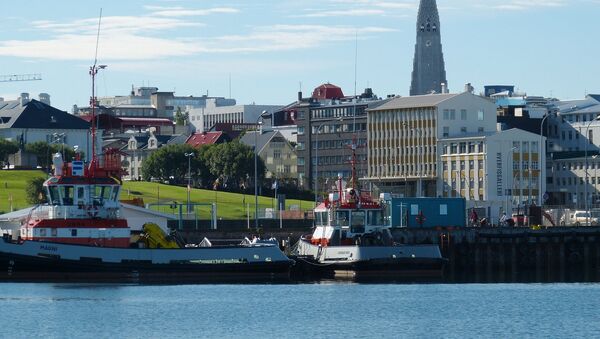Today, Thorvaldur Gylfason, a professor of economics at the University of Iceland and one of the nation's leading economists, who effectively envisaged the 2008 collapse, warns about a new crisis looming.
All in all, Iceland managed the crisis rather well, Thorvaldur Gylfason told the Swedish daily Dagens Nyheter, stressing the support from the International Monetary Fund (IMF) and Iceland's Nordic peers. However, Iceland refused to honor the guarantees given by its banks to their foreign depositors, which resulted in particularly frosty relations with the UK and the Netherlands.
"Basically we have a nation that stuck away with astronomical amounts of money belonging to others. Then it's no longer strange that the economy is going so well, right?" Thorvaldur Gylfason commented with a laugh.
"If the hole had not been as deep as it was, I believe Iceland would have chosen the same solution as Ireland, that is forcing taxpayers to pay up," Gylfason noted.
Even if Icelanders showed everyone that banks aren't necessary "holy cows," banks are often owned by pension funds, states and municipalities, which means that any bank crash will sooner or later have repercussions for ordinary people.
"The only question is how to spread the losses," Thorvaldur Gylfason said.
In 2008, tens of thousands of Icelandic households saw their loan burden rise dramatically. The reason is that most Icelanders had borrowed in foreign currency, but when the crash came, the Icelandic krona collapsed, effectively inflating the debt together with interest and amortization.
"It was not until 2016 that national income per inhabitant recovered back to the pre-crisis level of 2007," Gylfason said, stressing that it has taken nine years to restore the average Icelander's purchasing power.
The crisis has left a bitter mark on Icelanders. At the height of the crisis, as many as three households a day had to give up their homes to banks. Many were allowed to stay in their former homes and pay the rent. Iceland has also required legal responsibility for the bankers. So far, 35 people have been sentenced to an average of 2.5-year prison terms for crimes ranging from breach of faith to fraud. Also, negotiations between the failed banks and their creditors are still ongoing.





